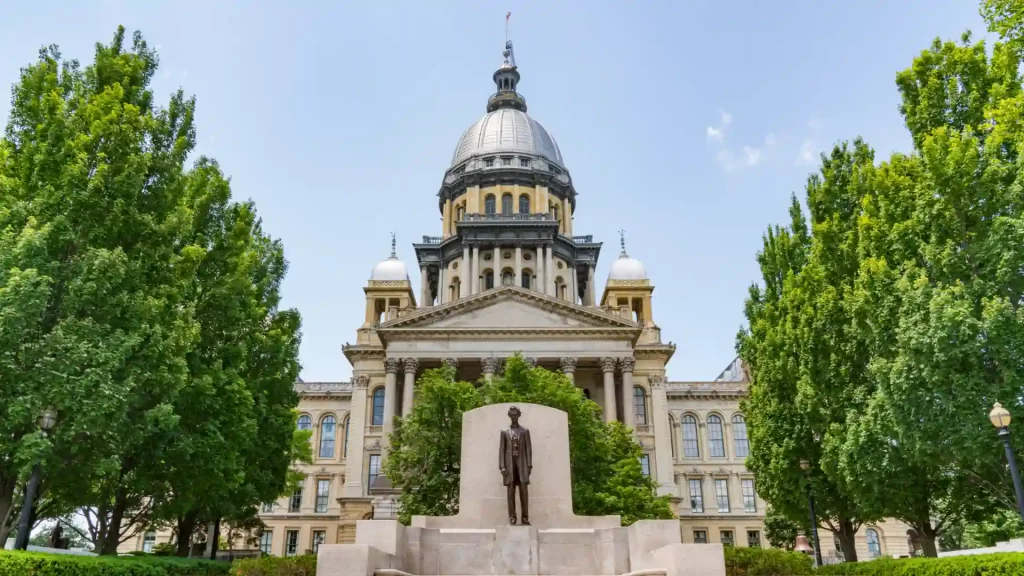Citizens in Illinois will witness a modest tax relief starting July 1st, 2022 (Friday), when the state’s new financial year commences.
Illinois Tax Relief
The tax relief encompasses some property tax rebates, income tax rebates, a suspension of 1% tax on groceries, and a 6-month break on the organized inflationary surge in the state’s motor fuel tax.
Legislative Democrats and Governor JB Pritzker hosted a news conference publicizing those tax breaks as consumers coped with 8.6% inflation, the most colossal rate in close to four decades.
Pritzker stated at a news conference in Chicago, that the Government of Illinois was expending USD 1.8 billion in tax relief to Illinois families, and that they were capable to do that owing to the balancing of the budgets by the Democrats. The balancing alleviated the bill backlog, and the state government was presently running an excess, the Governor indicated at a news conference in Chicago.
The news conference arrived merely two days after the state’s primary elections, symbolizing the kick-off to the general election cycle in which the Democrats and Pritzker, who hold sway over both chambers of the General Assembly, will be publicizing their financial management of the state.
The tax relief strategies were encompassed in the USD 46 billion budget lawmakers passed for the financial year that commences on Friday.
They comprise of the following –
- A deferral of the 1% sales tax on groceries until June 2023.
- An income tax reduction of USD 50 per individual with an annual income less than USD 200,000, or USD 100 for couples filing jointly with an annual income less than USD 400,000, and USD 100 per dependent child (for up to 3 kids).
- A sales tax holiday on school items, from August 5th to August 14th, when the rate will be levied at 1.25% instead of the usual 6.25%.
- A deferral of the arranged inflationary surge in the motor fuel tax through December 31st, 2022, which has been valued at 2.2 cents per gallon. Instead, the motor fuel tax will surge two times at the rate of inflation in 2023.
- An extra property tax reduction of up to USD 300 for home proprietors who were entitled to appeal for the property tax credit on their 2021 state tax returns. The reduction is available to joint filers receiving USD 500,000 or less and single filers making USD 250,000 or lesser.
Additionally, the tax relief package encompassed a perpetual extension of the state’s earned income tax credit (EITC), to 20% of the federal earned income tax credit whilst also expanding admissibility for that credit to non-citizens who file taxes utilising an Individual Taxpayer Identification Number instead of a Social Security Number.
Republicans Slam Tax Relief Measures
Republicans condemned that package as an election-year publicity stunt, stating that the reduction checks would turn up in people’s mailboxes or bank accounts prior to the Election Day, whilst motor fuel tax deferment would disappear following Election Day.
Republicans also slammed some of the tax gaps as too trivial or for not being a permanent initiative, stated that the grocery tax interruption would merely save customers USD 1 on a USD 100 grocery bill, and the motor fuel tax savings would merely save 22 cents on a 10-gallon tank of gas.
The Republicans proposed an option, which would have barred or capped Illinois’ 6.25% sales tax on motor fuels, which they stated had been generating a windfall for Illinois as gasoline rates had peaked to record levels.
According to the American Automobile Association, the average rate of gasoline in Illinois balanced at USD 5.39 on 30th June 2022 (Thursday). This comprised 37 cents of sales tax.
However, Democrats debunked that criticism, arguing that they had passed balanced budgets for the past 4 years that had delivered two credit upgrades. The credit upgrades of the Democrats were delivered from all three major rating agencies. Additionally, the Democrats indicated that they had also alleviated the bill backlog whilst also making investments in essential state services in Illinois.
